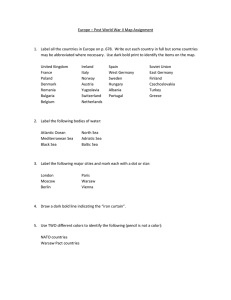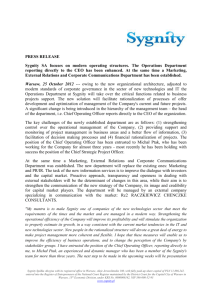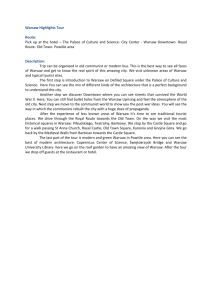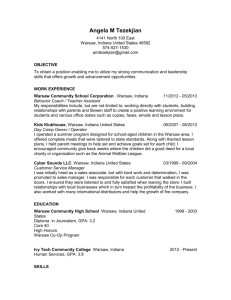Warsaw in 2024: Navigating Challenges and Opportunities
advertisement
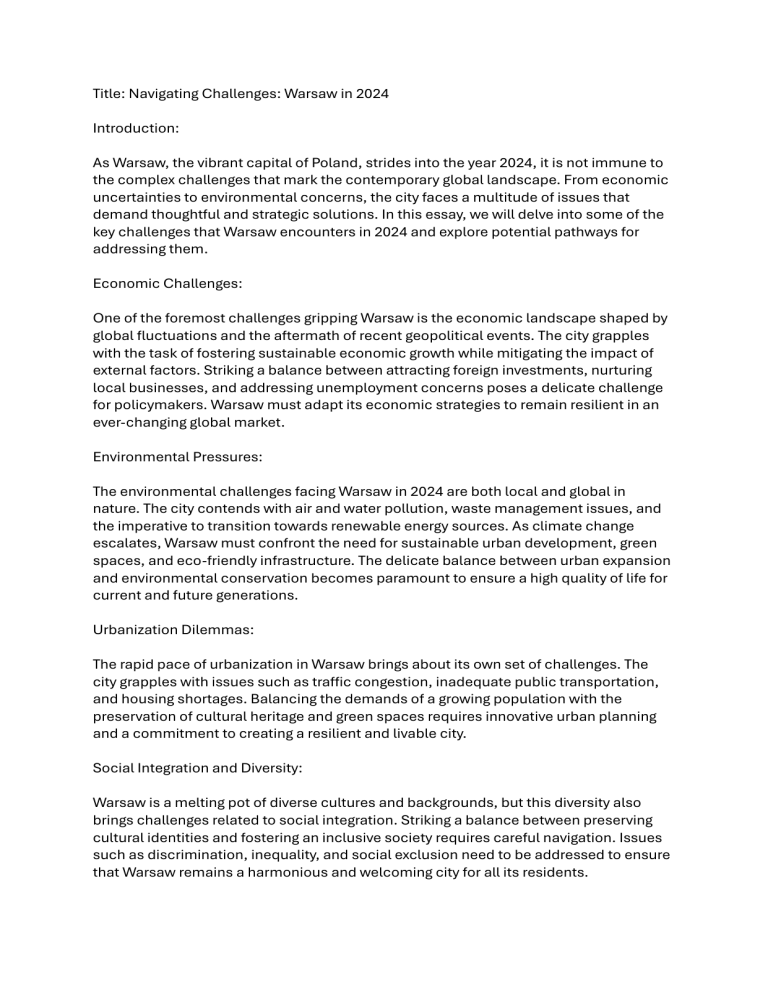
Title: Navigating Challenges: Warsaw in 2024 Introduction: As Warsaw, the vibrant capital of Poland, strides into the year 2024, it is not immune to the complex challenges that mark the contemporary global landscape. From economic uncertainties to environmental concerns, the city faces a multitude of issues that demand thoughtful and strategic solutions. In this essay, we will delve into some of the key challenges that Warsaw encounters in 2024 and explore potential pathways for addressing them. Economic Challenges: One of the foremost challenges gripping Warsaw is the economic landscape shaped by global fluctuations and the aftermath of recent geopolitical events. The city grapples with the task of fostering sustainable economic growth while mitigating the impact of external factors. Striking a balance between attracting foreign investments, nurturing local businesses, and addressing unemployment concerns poses a delicate challenge for policymakers. Warsaw must adapt its economic strategies to remain resilient in an ever-changing global market. Environmental Pressures: The environmental challenges facing Warsaw in 2024 are both local and global in nature. The city contends with air and water pollution, waste management issues, and the imperative to transition towards renewable energy sources. As climate change escalates, Warsaw must confront the need for sustainable urban development, green spaces, and eco-friendly infrastructure. The delicate balance between urban expansion and environmental conservation becomes paramount to ensure a high quality of life for current and future generations. Urbanization Dilemmas: The rapid pace of urbanization in Warsaw brings about its own set of challenges. The city grapples with issues such as traPic congestion, inadequate public transportation, and housing shortages. Balancing the demands of a growing population with the preservation of cultural heritage and green spaces requires innovative urban planning and a commitment to creating a resilient and livable city. Social Integration and Diversity: Warsaw is a melting pot of diverse cultures and backgrounds, but this diversity also brings challenges related to social integration. Striking a balance between preserving cultural identities and fostering an inclusive society requires careful navigation. Issues such as discrimination, inequality, and social exclusion need to be addressed to ensure that Warsaw remains a harmonious and welcoming city for all its residents. Technological Transformations: The rapid pace of technological advancements presents both opportunities and challenges for Warsaw in 2024. The city needs to adapt to the digital age, embracing innovations like smart infrastructure, artificial intelligence, and the internet of things. Simultaneously, safeguarding against the potential negative consequences of technology, such as job displacement and cybersecurity threats, is crucial for the city's sustained progress. Conclusion: As Warsaw confronts the challenges of 2024, it is essential to recognize that addressing these issues requires a collaborative and multifaceted approach. The city must draw upon the strengths of its diverse population, engage in strategic urban planning, and embrace sustainable practices to navigate the complexities of the modern era successfully. Through a concerted ePort from policymakers, businesses, and citizens alike, Warsaw can transform these challenges into opportunities for growth, resilience, and a brighter future.
